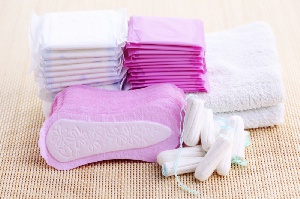 There are growing public calls for government to scrap taxes on menstrual pads
There are growing public calls for government to scrap taxes on menstrual pads
In Ghana, a topic that affects the lives of millions of women and girls remains shrouded in silence and stigma: the exorbitant cost of sanitary towels.
Menstruation is a natural biological process experienced by half of the world’s population, yet the financial burden it places on women and girls in Ghana is a stark reality that demands attention.
National Coordinator for Civil Society Organizations on SDGs, Levelyn Konadu Asiedu has called on the Ministry of Finance and other stakeholders to declassify sanitary towels and sanitary products as miscellaneous articles to make them affordable for women.
According to her, the imposition of 15 taxes including the ECOWAS levy, Network charges VAT on basic products like sanitary pads accounts for its exorbitant prices.
“We have studied other countries and even Nigeria has exempted pads from being taxed. It is called Zero Rating Products. In Ghana, we also have the Zero Rated Products. When you look at the FDA’s list and the Ministry of Finance tax records, sanitary pads fall under medical devices and it is tax-free. However, in the harmonized system code, where we get the taxation, it is classified as miscellaneous articles which attract 20% import duty tax”, she explained.
While menstrual hygiene is an essential aspect of women’s health and well-being, the cost of sanitary towels often poses significant challenges for those living in impoverished communities. Limited access to affordable, quality menstrual products perpetuates a cycle of inequality, hindering education, and economic empowerment, and overall widens the gender inequality gap.